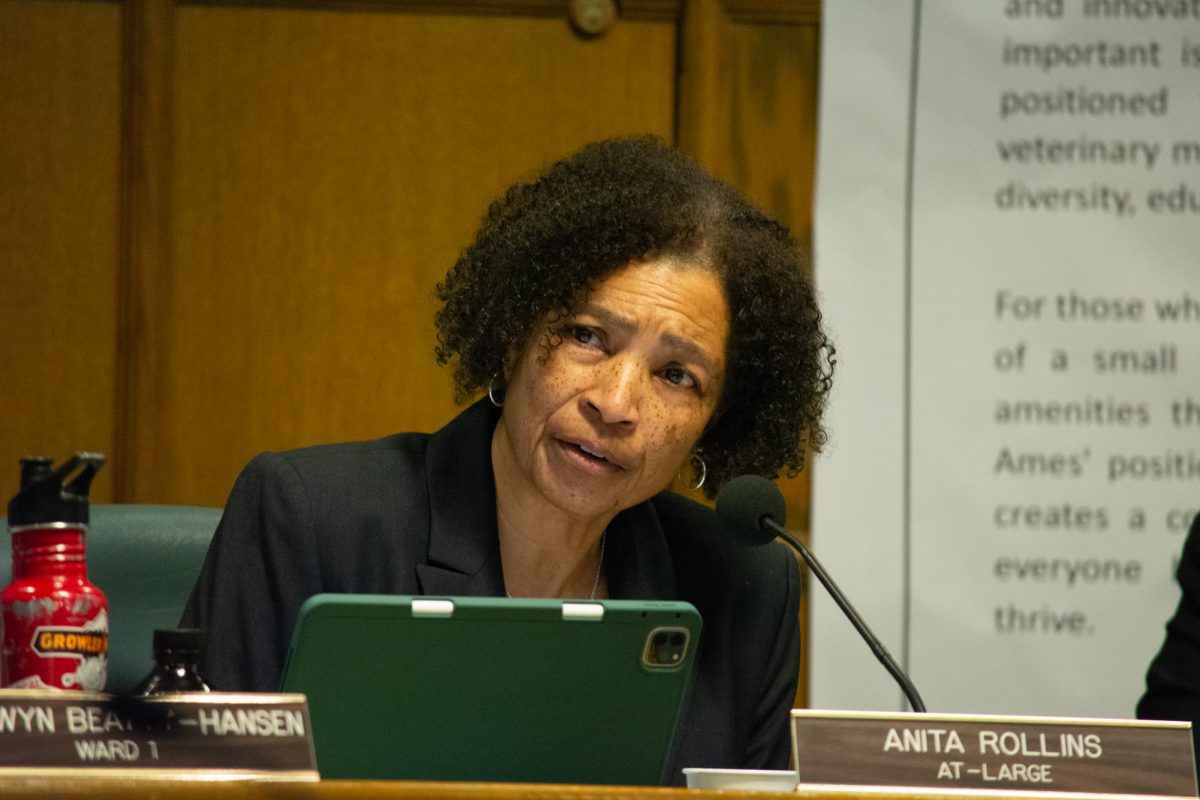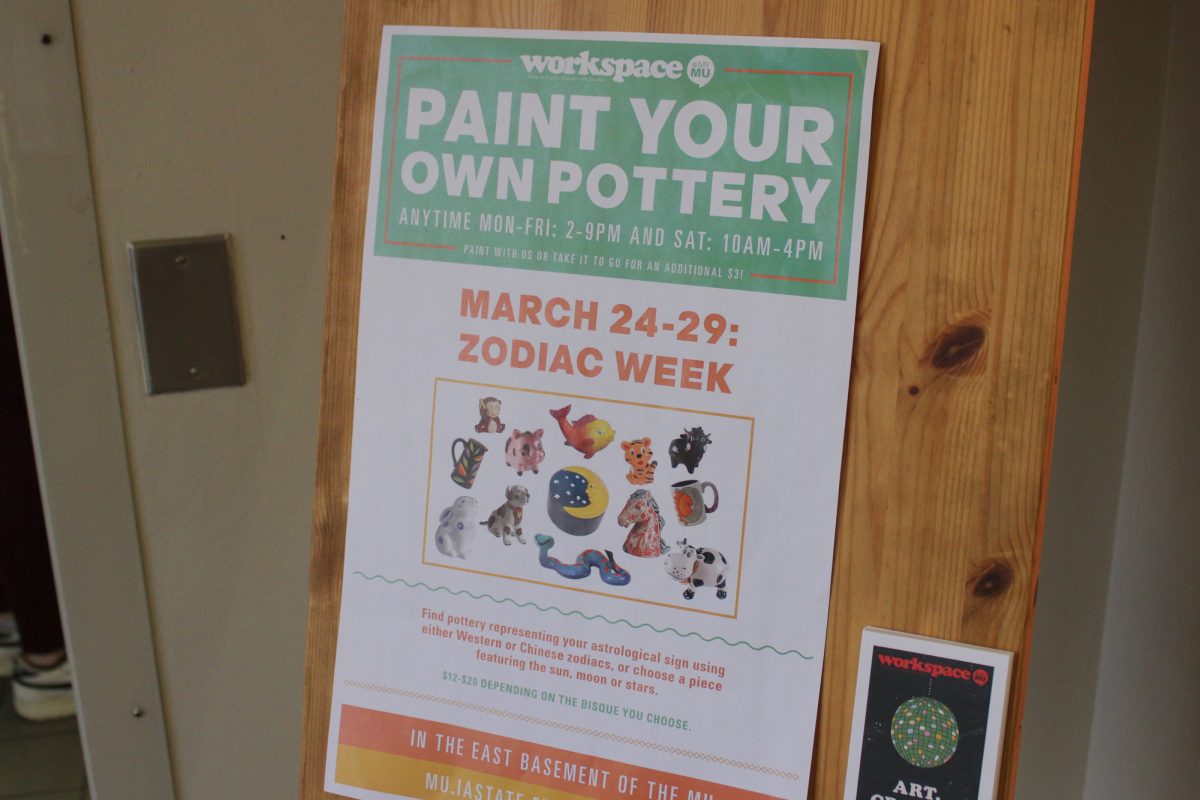Iowa State University settles with former professor for $275,000
December 15, 2021
Content warning: This article contains information about sexual harassment.
Editor’s note: The Daily obtained the information and documentation for this article from the involved parties.
A three-and-a-half year intradepartmental dispute regarding sexual harassment, retaliation and research misconduct concluded in a $275,000 settlement between Iowa State University and a former professor in November.
How the dispute began:
In January 2019 Iowa State’s Office of Equal Opportunity initiated a formal investigation after full-time professor Elizabeth “Birdie” Shirtcliff reported being sexually harassed by Human Development and Family Studies Department Chairman Carl Weems.
Shirtcliff said she started receiving “sexually harassing” messages from Weems and Monica Marsee, an associate professor of psychology and Weems’ domestic partner, after an unwanted sexual advance in February 2018. Shirtcliff said she informed Weems, her department chair and a mandatory informant, of the harassment multiple times before he reported it.
Shirtcliff claimed Weems and Marsee were trying to seduce her and her husband who is also a faculty member at Iowa State. Shirtcliff collected 25 megabytes worth of what she considered to be evidence against Weems and Marsee to submit for the investigation.
When Shirtcliff requested Weems and Marsee end the sexual advances, Marsee’s harassment only worsened, Shirtcliff said. All claims of harassment were deemed unfounded by the university after an investigation by the Office of Equal Opportunity (OEO).
“It was confusing though because of the power dynamic, and her [Marsee] behavior was arguably much worse,” Shirtcliff said. “But I needed him to get her to stop as her partner and as my chair.”
Weems then sent an email to the University’s Office of Equal Opportunity, stating Shirtcliff felt harassed by Marsee.
Iowa State’s Office of Equal Opportunity opened a formal investigation into the alleged misconduct against Weems and Marsee on Jan. 4, 2019.
“The purpose of a formal investigation is to determine whether the respondent is or is not responsible for a violation of the policy, considering the context and the totality of the information presented using a preponderance of the evidence standard of proof,” Iowa State Communications Specialist Angie Hunt wrote in an email response to the Daily. “In this case, all claims of sexual harassment were fully investigated and found to be without merit.”
According to Iowa State University, Weems was replaced as Shirtcliff’s chairman by the Human Development and Family Studies department’s Associate Chairman Robert Reason. Shortly after the investigation began, Weems sent an email to the Provost’s Office alleging Shirtcliff’s OEO complaint was defraying attention from her potential research misconduct.
On Feb. 27, 2020, Shirtcliff received a letter from the Associate Vice President for Research, Guru Rao. In accordance with Iowa State University’s Research Misconduct Policy, Rao stated Shirtcliff’s dispute did not fall under the category of research misconduct and did not come under the purview of the Research Integrity Officer.
“Internally, I would encourage the administration in the College of Human Science to work with the college of LAS to arbitrate the dispute in the spirit of section 7.1.2 of the Faculty Handbook,” Rao wrote.
The only claim found to be substantiated in the investigation was Weems failed to timely and promptly report a potential or suspected violation of policy in regard to Shirtcliff’s harassment complaint. However, Weems did send an email to the Office of Equal Opportunity on September 12, 2018 regarding Shirtcliff’s allegations of harassment against Marsee. All allegations of sexual harassment and retaliation filed by Shirtcliff were “unfounded” based on the Office of Equal Opportunity’s investigation.
Weems’ complaint was held in abeyance because of Shirtcliff’s complaint but was eventually withdrawn by Weems after the conclusion of the OEO investigation on July 1, 2019.
After the OEO investigation, Shirtcliff then filed a faculty misconduct complaint with four allegations and sub allegations of retaliation for her IX complaint against Weems. During the Faculty Review Board process regarding Shirtcliff’s four allegations, she then submitted three additional allegations of retaliation against Weems. All seven allegations were unfounded by the conclusion of the investigation.
The allegation was “unfounded” based on a preponderance of evidence due to a lack of material adverse action, according to documentation from the Faculty Review Board Process.
“Essentially no harm no foul, because I still had my job and the retaliation was unsuccessful; it did not reach the level of material, not trivial impact,” Shirtcliff said. “It is a very narrow reading of retaliation to say that material not trivial has to be of intent and impact.”
“All of the allegations Dr. Shirtcliff made against me are false,” Weems said in an email response to the Daily. “The allegations of harassment and retaliation she made against me were shown to be false to the university by investigations into her claims about me.”
“As noted in the existing university response – ‘ISU disputes all of her claims against the university and its employees’ and ‘In this case, all claims of sexual harassment were fully investigated and found to be without merit.’ I can state that I know that the allegations she made against me were fabricated by Dr. Shirtcliff so that she could avoid investigation into her own actions. I am very appreciative to those many individuals who know the truth about this and explained the truth about the matters that pertain to me in the investigations related to this,” Weems said.
“I think the most important evidence that my statements are the truth is that the university paid Dr. Shirtcliff to leave the university and I am here still doing my job helping others – with the university’s support to remain,” Weems said. “I look forward to putting this behind me and I wish the same for Dr Shirtcliff.”
Before working at Iowa State University, Weems, Marsee and Shirtcliff were all employed at the University of New Orleans. At Iowa State, Shirtcliff worked as the director of the Stress Physiology Investigative Team (SPIT) laboratory. Her work primarily examined the effects of stress and adolescent development.
Shirtcliff shared documentation with the Daily from three medical physicians diagnosing her with PTSD. Shirtcliff also provided this documentation to Iowa State University. Based on her diagnosis, Shirtcliff attempted to qualify for disability accommodations under the Americans with Disabilities Act (ADA). Shirtcliff claims the PTSD is the result of sexual harassment.
Shirtcliff’s medical provider advised she not be directly or indirectly supervised by Weems. During this time, however, Shirtcliff said she continued to be indirectly supervised by Weems. Continued interactions with Weems were triggering, Shirtcliff said.
The University Human Resources employee leave and accommodation coordinator recommended Shirtcliff attend meetings with her video off and attend therapy on days she may encounter Weems.
“It was essentially things I could do as a professor. I didn’t need HR’s permission to go to a meeting with video off,” Shirtcliff said.
Shirtcliff then applied for accommodations under the Family and Medical Leave Act. The university approved Shirtcliff for intermittent leave to allow her to attend medical appointments, according to the Faculty Review Board Process.
Shirtcliff’s medical provider recommended she be granted reduced leave, which lessens the number of working hours in a workweek. Shirtcliff then applied for a 50 percent reduced schedule responsibilities and was granted the leave according to emails from University Legal Counsel.
The university then found Shirtcliff’s request that she not be directly or indirectly supervised by Weems to be unreasonable and that she did not have PTSD. Shirtcliff then hired a lawyer to consult with Iowa State University Legal Counsel about the accommodations.
“One of the things victims can sometimes experience is a blame that says, ‘If they had just been more powerful then this wouldn’t have happened,’” Shirtcliff said. “I am a very successful scientist. I am internationally famous, and that did not stop this from happening to me and that did not stop the university from following a playbook that silences victims.”
Iowa State University Legal Counsel recognized certain circumstances where PTSD may qualify as a disability under the Americans with Disabilities Act but, one must also demonstrate that PTSD substantially limits their ability to perform a major life activity. University Legal Counsel cited Shirtcliff’s medical recommendations, indicating Shirtcliff is only unable to perform her duties after direct or indirect contact with Weems.
“It is not enough, however, for Dr. Shirtcliff to demonstrate that she suffers from PTSD. She must also demonstrate that her PTSD substantially limits her ability to perform a major life activity,” Associate University Counsel Heather Smith wrote in a letter to Shirtcliff’s attorney. “An individual is not substantially limited in working if she is only restricted from her particular job. Additionally, mental impairments triggered by conflicts only with an employee’s supervisor are not disabilities.”
The University Legal Counsel cited four cases outside of Iowa’s Eighth Circuit Court as precedent for its interpretation of the effects of Shirtcliff’s PTSD.
“An employer is not required to provide an anxiety-free or stress-free environment, or to reassign an employee away from any supervisor or coworker who may cause stress or conflict,” Smith wrote citing precedent from a case in 1999 out of the Eighth Circuit Court.
After continued negotiations with University Legal Counsel and Shirtcliff’s attorney, Shirtcliff filed a complaint with the Iowa Civil Rights Commission, which she then withdrew in accordance with the settlement. Shirtcliff filed her evidence with the Iowa Civil Rights Commission for a preliminary case review screening.
The screening found Iowa State University’s claim that Shirtcliff did not have a qualifying disability was inaccurate. The Iowa Civil Rights Commission Screening also found the university’s interpretation that Shirtcliff’s requested accommodations were unreasonable as inaccurate.
The settlement paid Shirtcliff in compromise for non-wage compensatory damage, stemming from claims for emotional distress and personal injury, according to the settlement.
In turn, Shirtcliff agreed to resign from her job at Iowa State and withdraw her complaint to the Iowa Civil Rights Commission. As part of the settlement, the university withdrew a letter accusing Shirtcliff of bullying behavior, a violation of the Faculty Handbook.
“The environment had been so toxic for such a long time that I had a choice between my career, which was successful but relied on my brain; it relied on my mind and my intellect,” Shirtcliff said. “With PTSD and the ongoing harassment and retaliation, it was stripping me of my brain and my ability to think. So I had a choice between my career and my brain, and I picked my brain.”
The Iowa Civil Rights Commission screening took place after Iowa State’s investigation and recommended further investigation based on the evidence submitted by Shirtcliff.
“Iowa State University disputes all of Dr. Shirtcliff’s claims against the university and its employees. As set forth in the Settlement Agreement, the university agreed to withdraw a Letter of Direction, suspend the faculty misconduct process related to Dr. Shirtcliff’s employment and make the specified separation payment [the settlement was a non-wage compensatory damage for emotional distress],” according to a statement from Iowa State University.
“In return, Dr. Shirtcliff agreed to immediately resign her employment with the university, not seek rehire and waive all of her alleged claims against the university. The Settlement Agreement allows Dr. Shirtcliff and the University to move forward separately for the benefit of both parties.”







